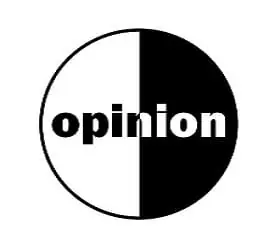Guide Stars Lessons: Empathy Elevates Service
Imagine this: You walk into a store after a long, exhausting day, just trying to grab something quick. As you approach the counter, the cashier doesn’t even bother to look up—no greeting, no acknowledgment, nothing. They’re glued to their phone, acting like you’re invisible. You muster the energy to ask for help, and all you get is an annoyed sigh, followed by a lazy, half-hearted response. It’s like a slap in the face….a total lack of respect. You walk out feeling worse than when you came in, and the frustration festers. Within minutes, you’re venting online, and before you know it, your post takes off. People start sharing their own horror stories, and suddenly, that cashier’s attitude isn’t just your problem—it’s a stain on the store’s entire reputation. All of it could have been avoided if just a little basic human decency had shown up in that one interaction.
It’s situations like this that make me wonder: Have we become so numb to the importance of customer service that we think it’s acceptable to treat people like they’re inconveniences? In this age where social media can turn a minor slip-up into a full-blown scandal, we can’t afford to keep overlooking how we engage with others. It’s no longer just about doing the bare minimum and moving on. A careless moment, caught on camera or shared in a tweet, can define you, your business, or your brand for years to come. Yet, we still see so many people acting with an air of indifference, treating customers as though they’re merely a means to an end.
Here’s the real issue: We’ve gotten so wrapped up in chasing the paycheck, in focusing on the bottom line, that we’ve forgotten the humanity behind each interaction. Customer service is more than just a transaction—it’s a chance to leave someone better than you found them, even if it’s just by showing a little kindness or patience. It’s recognizing that when you’re in the position to serve, you’re in a position of privilege. You have the power to improve someone’s day, to help them, and to give them a positive experience, even when you or they are having a rough day.
But too often, we blow that opportunity, reducing these moments to cold, emotionless exchanges. We’ve become so comfortable with our own selfishness that we don’t see how much damage we’re doing. It’s time to wake up to this reality. To disturb the peace of our own complacency, to look in the mirror and ask, “Am I part of the problem?” And if the answer is yes, it’s time to do better. Because until we start seeing these interactions for what they are—human connections, not just dollar signs, we’ll keep missing the point entirely.
Each interaction we have, no matter how brief, holds the potential to impact someone in ways we may never fully understand. That’s why it’s so important to see past the surface. When someone walks up to the counter, visibly annoyed or frustrated, it’s easy to dismiss them, or worse, label them as “difficult” without a second thought. But this is where empathy must come into play. We never know what someone might be going through, and while their frustration may not be directed at us personally, how we respond can either calm the storm or fuel the fire. Even when a person is noticeably unpleasant or, dare I say, acting “piggish,” the goal should always be to rise above and improve the interaction, not sink into the same negative space. In that moment, we might be the one thing that helps turn their day around—or at the very least, we can refuse to make it worse.
Whether or not we succeed in changing the other person’s mood, our role is to maintain a level of professionalism and compassion that reflects both our own values and those of the business we represent. After all, how we handle tough situations speaks volumes about who we are. The truth is, being empathetic doesn’t just help the customer—it benefits us too. It keeps us grounded, improves our own mental and emotional health, and ultimately, ensures that we’re contributing to a culture of care rather than adding to the tension.
Think about this: every time you choose to be kind and empathetic in an interaction, you’re not just making someone else’s day better, you’re literally improving your own health. It’s scientifically proven that when we treat others with patience and compassion, our brains light up with dopamine and oxytocin, the same chemicals that make us feel good after a workout or a rewarding experience. It’s a natural high, one that rewires our brain to feel more connected and also reduces anxiety. Now, imagine the opposite. When you allow yourself to react negatively: snapping back, rolling your eyes—you’re pumping your body full of cortisol, the stress hormone that weakens your immune system, messes with your sleep, and even makes you more prone to illnesses. Is that worth it? One bad moment with a customer could literally be making you sick.
And let’s not forget your physical health. Keeping calm and showing empathy doesn’t just boost your mood; it has a direct impact on your long-term health. Research shows that positive social interactions lower your blood pressure, reduce inflammation, and even help you live longer. That’s right, staying cool under pressure can actually keep your heart healthy and increase your lifespan. So, the next time someone tests your patience, remember this: choosing kindness isn’t just good for them—it’s saving your own life. Why let one unpleasant customer drag you down physically and mentally when you have the power to control how you feel, both inside and out? Make the choice that benefits you. Stay kind. Stay healthy.
Every single interaction, no matter how fleeting, is a powerful reminder that we’re connecting with another human being, someone living through the same complex, messy reality we all face. It’s easy to forget, but each moment offers us a chance to acknowledge our shared humanity. And here’s the thing: you might think you can get away with being dismissive or rude, but the truth? You don’t. We are all accountable to each other, whether we like it or not. That annoyed customer or confused client? They’re not just a task to get through—they’re a person, and how you treat them reflects back on you. Being horrid doesn’t just vanish into thin air. It sticks, and sooner or later, it circles back. The real power comes when we approach every interaction with the mindset that we’re all in this together. It’s not just about doing your job—it’s about understanding that in the grand scheme, we don’t escape the consequences of unkindness. You want to be better? Start by treating each person in front of you like they matter, because they do. And so do you.






